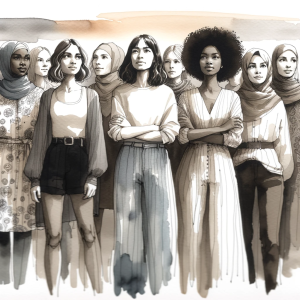
Understanding Gun Violence Through News
In the first half of 2021, a study focused on local television news in Philadelphia, revealing a concerning trend in how gun violence is reported, often neglecting its broader public health implications. Despite the alarming rise in gun violence, which is a critical public health issue in the United States, local news predominantly frames it as a crime issue rather than a health crisis. This blog delves into the study’s findings, its implications, and why a shift in narrative is crucial for public understanding and policy response.
The Study’s Approach
Researchers conducted a quantitative content analysis of 192 local news clips from January to June 2021. They examined how often gun violence was framed as a public health issue and identified potentially harmful content in these reports. The findings are stark: the vast majority of news stories used episodic framing focused on specific incidents, often with law enforcement as the primary narrators, and included visuals from police or crime scenes. Notably, these reports frequently omitted broader contexts like the epidemic’s root causes or potential solutions.
The Impact of Current Framing
The predominant use of episodic framing can have several detrimental effects. First, it tends to reduce gun violence to isolated incidents, missing the opportunity to explore underlying causes such as socioeconomic factors, systemic racism, or mental health issues. This type of reporting can also desensitize the public and policymakers, making them less likely to pursue comprehensive public health strategies to address the root causes of gun violence.
Moreover, the focus on police narratives and the lack of voice given to the victims or public health experts can skew public perception, making it seem as though policing is the only solution. This approach not only overlooks the potential for preventive measures but can also perpetuate stereotypes and stigmatize communities that are most affected by gun violence.
The Need for Public Health Framing
Employing a public health framework in reporting could significantly change how the public and policymakers view and address gun violence. Such framing would include discussing data and trends, exploring root causes, highlighting preventive measures, and involving narratives from public health professionals and community members. It would also mean providing practical solutions and resources for prevention, shifting the narrative from fatalism to one of prevention and community empowerment.
A Call to Action for Journalists
The study underscores the need for journalists to adopt more responsible reporting practices by:
- Minimizing harmful content that could re-traumatize victims.
- Including diverse voices, especially those of public health experts and community members directly affected by gun violence.
- Offering solutions and preventive measures rather than merely depicting gun violence as an inevitable part of urban life.
Engaging with the Community
Encouraging community engagement in storytelling can help ensure that the narratives reflect the realities and complexities of gun violence. News stories should aim to humanize those affected and provide a platform for their voices, helping to build empathy and understanding among viewers.
Conclusion
As this Philadelphia case study shows, there is a significant need for a paradigm shift in how gun violence is reported. Recognizing gun violence as a public health issue can lead to more informed public discourse and more effective policy solutions. It’s time for newsrooms to embrace this perspective and contribute to the prevention of gun violence through informed, empathetic, and solution-oriented reporting.
Empower Your Public Health Journey – Subscribe and Transform!
Unlock the transformative power of knowledge with ‘This Week in Public Health.’ Each issue is a treasure trove of insights into crucial research, community health achievements, and advocacy strategies. Don’t just read about change – be the agent of it. Subscribe for free and start making an impact with each edition!
About the Author
Jon Scaccia, with a Ph.D. in clinical-community psychology and a research fellowship at the US Department of Health and Human Services with expertise in public health systems and quality programs. He specializes in implementing innovative, data-informed strategies to enhance community health and development. Jon helped develop the R=MC² readiness model, which aids organizations in effectively navigating change. He loves data and Philly.



